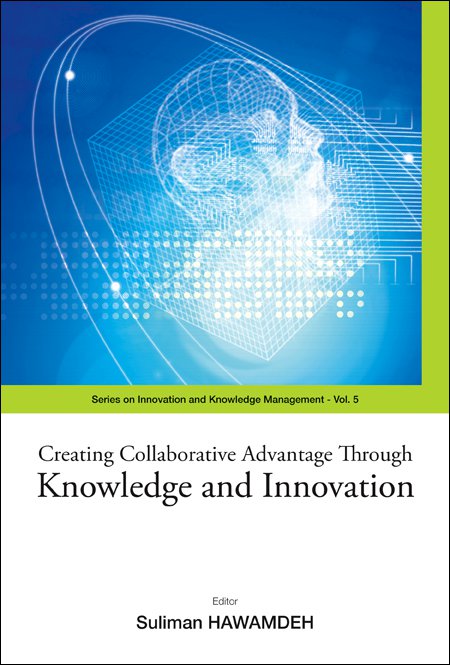System Upgrade on Tue, Oct 25th, 2022 at 2am (EDT)
Existing users will be able to log into the site and access content. However, E-commerce and registration of new users may not be available for up to 12 hours.For online purchase, please visit us again. Contact us at [email protected] for any enquiries.
Selected from the prestigious 2006 International Conference on Knowledge Management held in Greenwich, London, this volume represents much of the best and most up-to-date work by researchers and practitioners in the field of knowledge management (KM). It covers a wide range of topics that include social network analysis, innovation and creativity, KM tools and technologies, social network technologies, collaboration and knowledge sharing, issues in KM education and training, knowledge discovery (data mining, data warehousing, intelligent agents), knowledge organization (meta data, taxonomies, ontology), and social and psychological dimensions.
This book has been selected for coverage in:
• Index to Scientific & Technical Proceedings® (ISTP®/ISI Proceedings)
• Index to Scientific & Technical Proceedings (ISTP CDROM version/ISI Proceedings)
• Index to Social Sciences & Humanities Proceedings® (ISSHP®/ISI Proceedings)
• Index to Social Sciences & Humanities Proceedings (ISSHP CDROM version/ISI Proceedings)
Sample Chapter(s)
Chapter 1: The Business Transaction Theory and Moral Hazards for Knowledge Sharing: An Empirical Study (111 KB)
Contents:
- The Business Transaction Theory and Moral Hazards for Knowledge Sharing: An Empirical Study (F Barachini)
- Knowledge Management Techniques for Know-How Transfer Systems Design: The Case of an Oil Company (D Benmahamed & J-L Ermine)
- Altruistic Leadership: The Power of Knowledge Creation (M Sarabia & J M Sarabia)
- Context-Aware and Ontology-Driven Knowledge Sharing in P2P Communities (P O'Brien & S S R Abidi)
- Comparative Study Between Hotels and Airlines E-Commerce Sites in Singapore (Y-K Chang & M A M Arroyo)
- Important Competences of Strategists and Decision Makers in the Strategic Knowledge Management Model (R C Da R Miranda)
- Managing E-Records in North American Colleges and Universities: An Overview of Current Practices (L Zach)
- A Study on Measurement of Intellectual Capital Kernel Based on Artificial Neural Network and Empirical Analysis (N Huang & L Shuai)
- Adaptive and Contact-Sensitive Information Retrieval (A-C N Ngomo)
- Face Work and Credibility on the Web (T Nakamura & H Yuki)
- The Use of Keyphrases for Selecting Metadata from Taxonomies (R K Rajapakse et al.)
Readership: Academics, business people and students in the field of innovation and technology management.
THE BUSINESS TRANSACTION THEORY AND MORAL HAZARDS FOR KNOWLEDGE SHARING: AN EMPIRICAL STUDY
- Pages:1–13
KNOWLEDGE MANAGEMENT TECHNIQUES FOR KNOW-HOW TRANSFER SYSTEMS DESIGN: THE CASE OF AN OIL COMPANY
- Pages:15–33
PURSUING THE HOLY GRAIL OF KNOWLEDGE-BASED ECONOMY ASSESSMENT: : THE CASE OF SINGAPORE
- Pages:35–49
A FRAMEWORK FOR MEASURING THE VALUE CREATION OF KNOWLEDGE MANAGEMENT PROGRAMS: : FROM THE PERSPECTIVE OF ORGANIZATIONAL KNOWLEDGE SHARING CAPABILITY
- Pages:103–118
SOCIAL NETWORK ANALYSIS OF FOUR DEPARTMENTS IN THE NATIONAL UNIVERSITY OF SINGAPORE
- Pages:119–134
APPROACHING SCIENTIFIC KNOWLEDGE MANAGEMENT FROM ACTIONS COORDINATION, COMPUTER-SUPPORTED COLLABORATION, AND CONCEPT MAPPING
- Pages:175–189
IMPORTANT COMPETENCES OF STRATEGISTS AND DECISION MAKERS IN THE STRATEGIC KNOWLEDGE MANAGEMENT MODEL
- Pages:205–220
MANAGING E-RECORDS IN NORTH AMERICAN COLLEGES AND UNIVERSITIES: AN OVERVIEW OF CURRENT PRACTICES
- Pages:221–228
A STUDY ON MEASUREMENT OF INTELLECTUAL CAPITAL KERNEL BASED ON ARTIFICIAL NEURAL NETWORK AND EMPIRICAL ANALYSIS
- Pages:229–245
THE COMPILATION OF MATH PATTERN FOR PRODUCTIVITY IN INDUSTRIAL ORGANIZATIONS BASED ON ORGANIZATIONAL CLIMATE
- Pages:247–262
CAN BLOGGING BE USED TO IMPROVE MEDICATION ERROR COLLECTION AS PART OF HEALTH INFORMATICS KNOWLEDGE MANAGEMENT?
- Pages:301–313
Director of Center for Knowledge Management
Dominican University




















